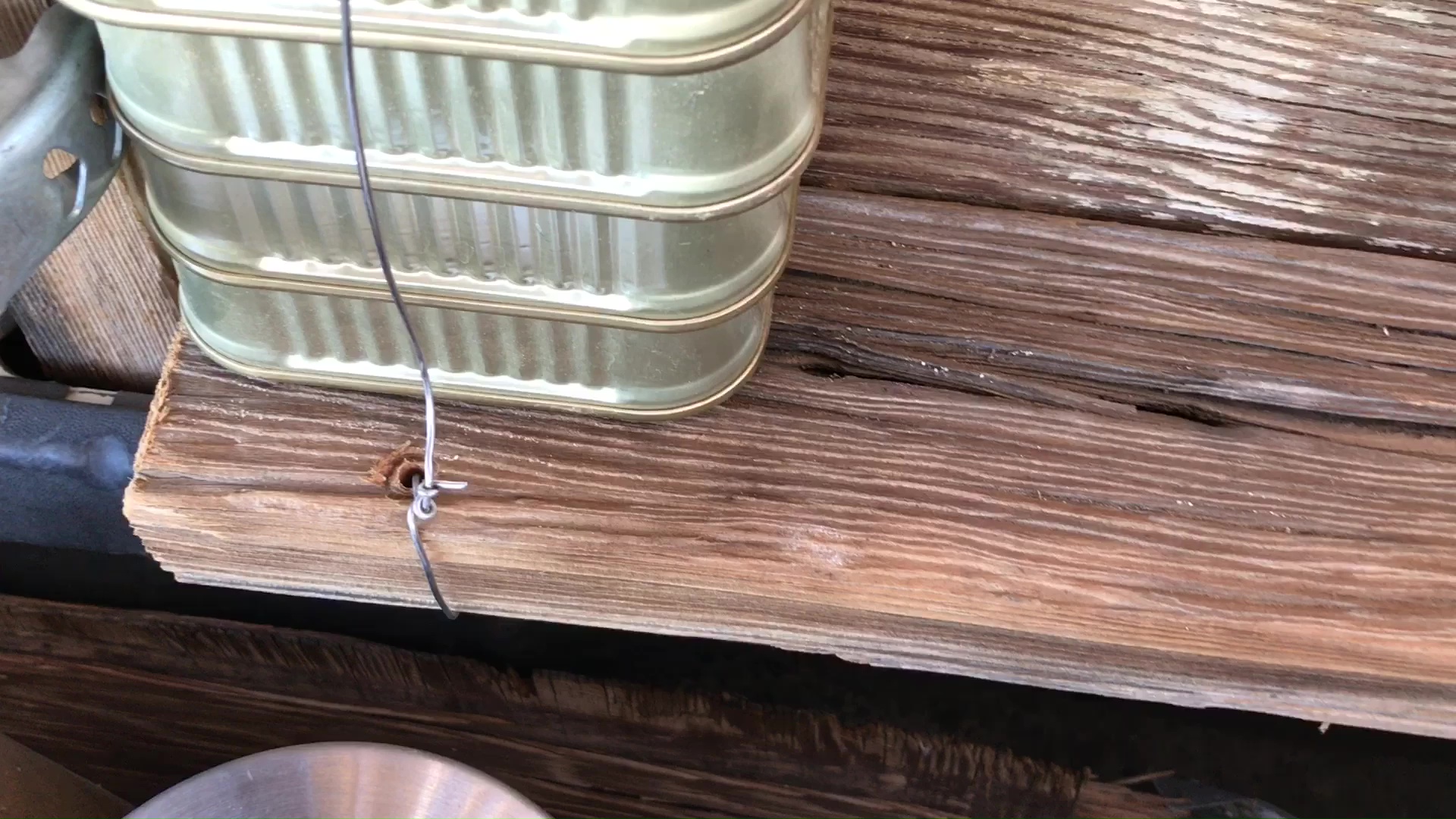
01 Drilled Attachment Point At Base Of First Column Of Wire Secured Fish Cans
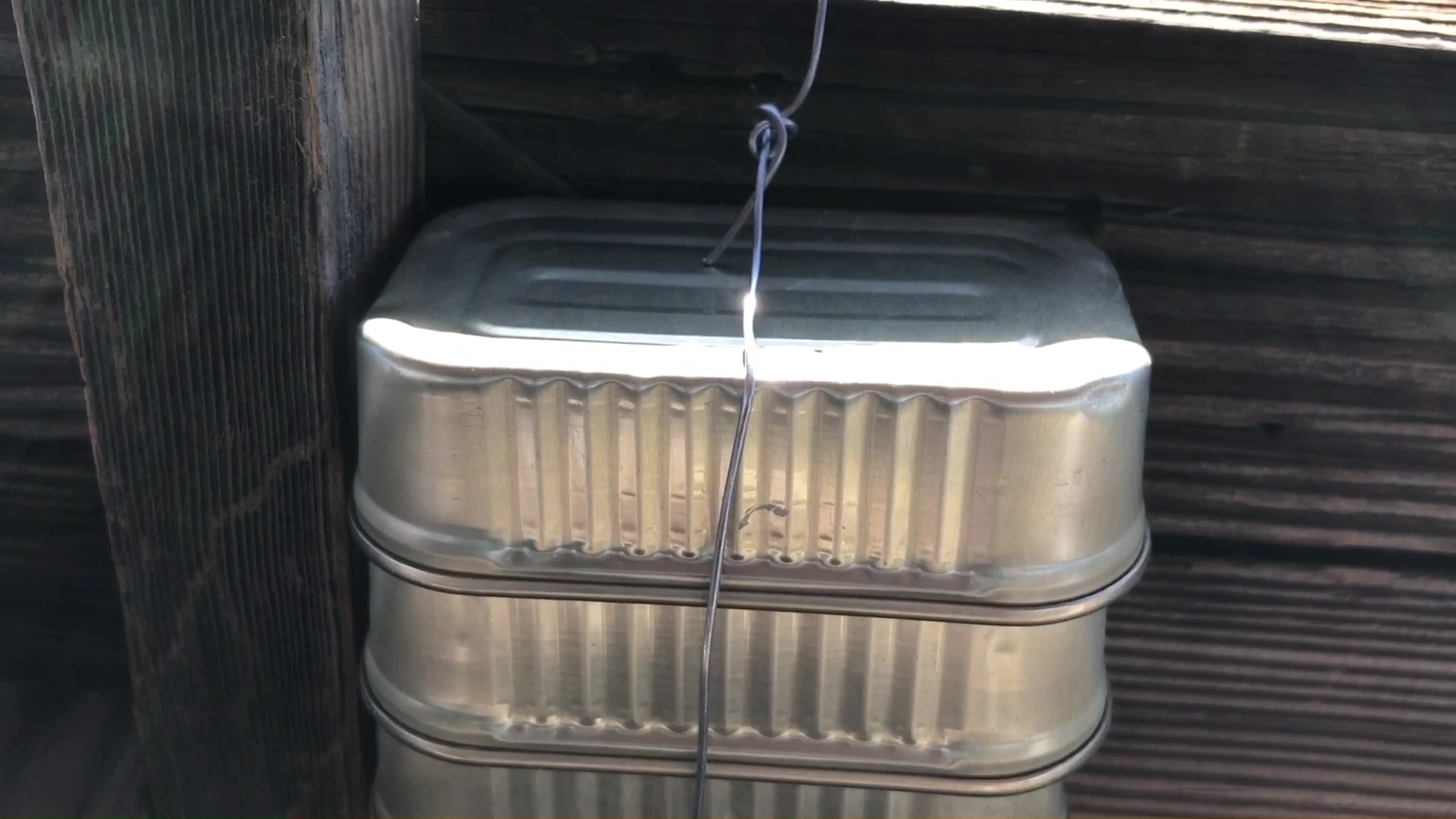
02 Drilled Attachment Point At Top Of Wire Secured Fish Cans
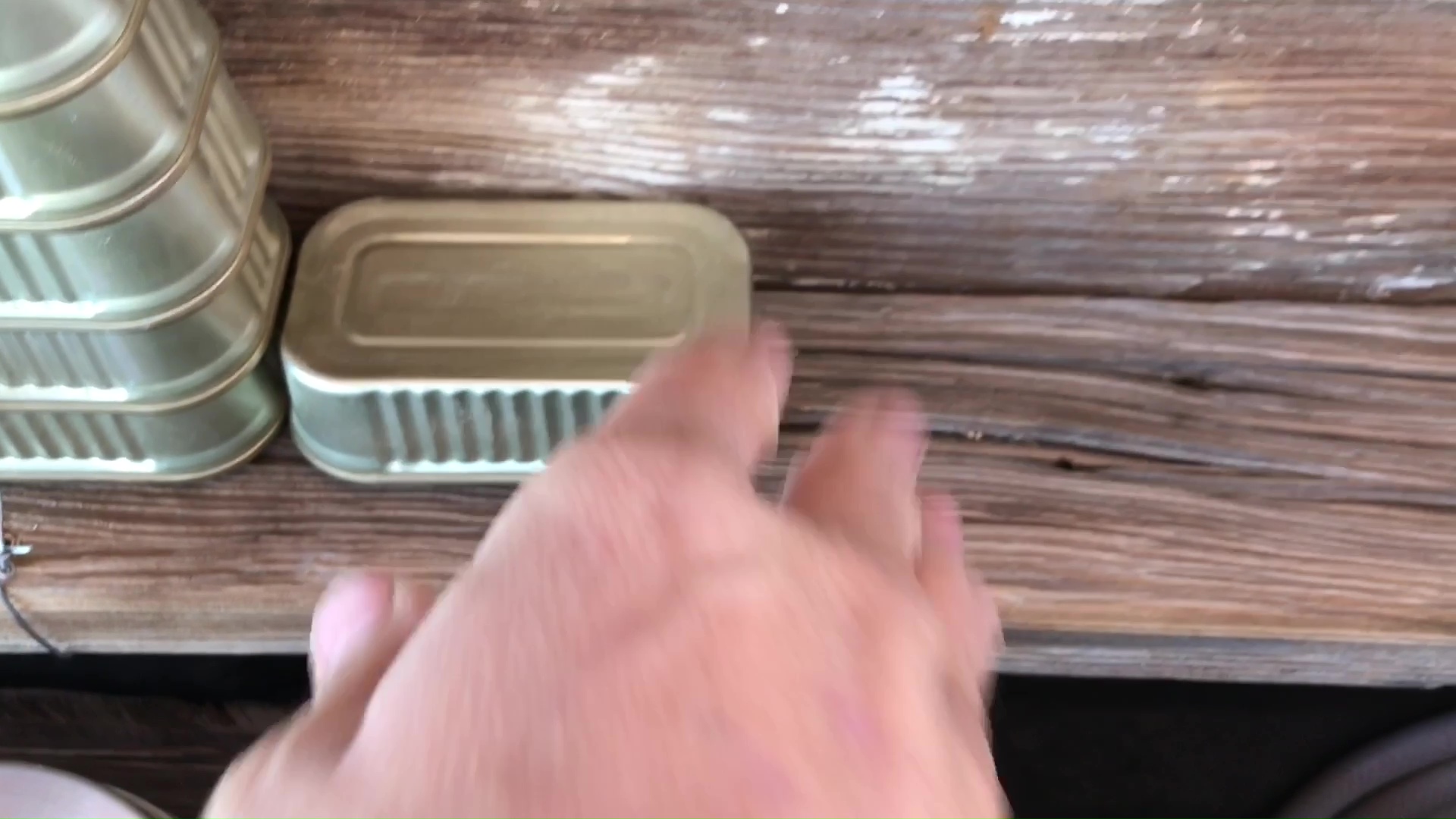
03 Measuring Drill Points For Wire Secured Fish Cans
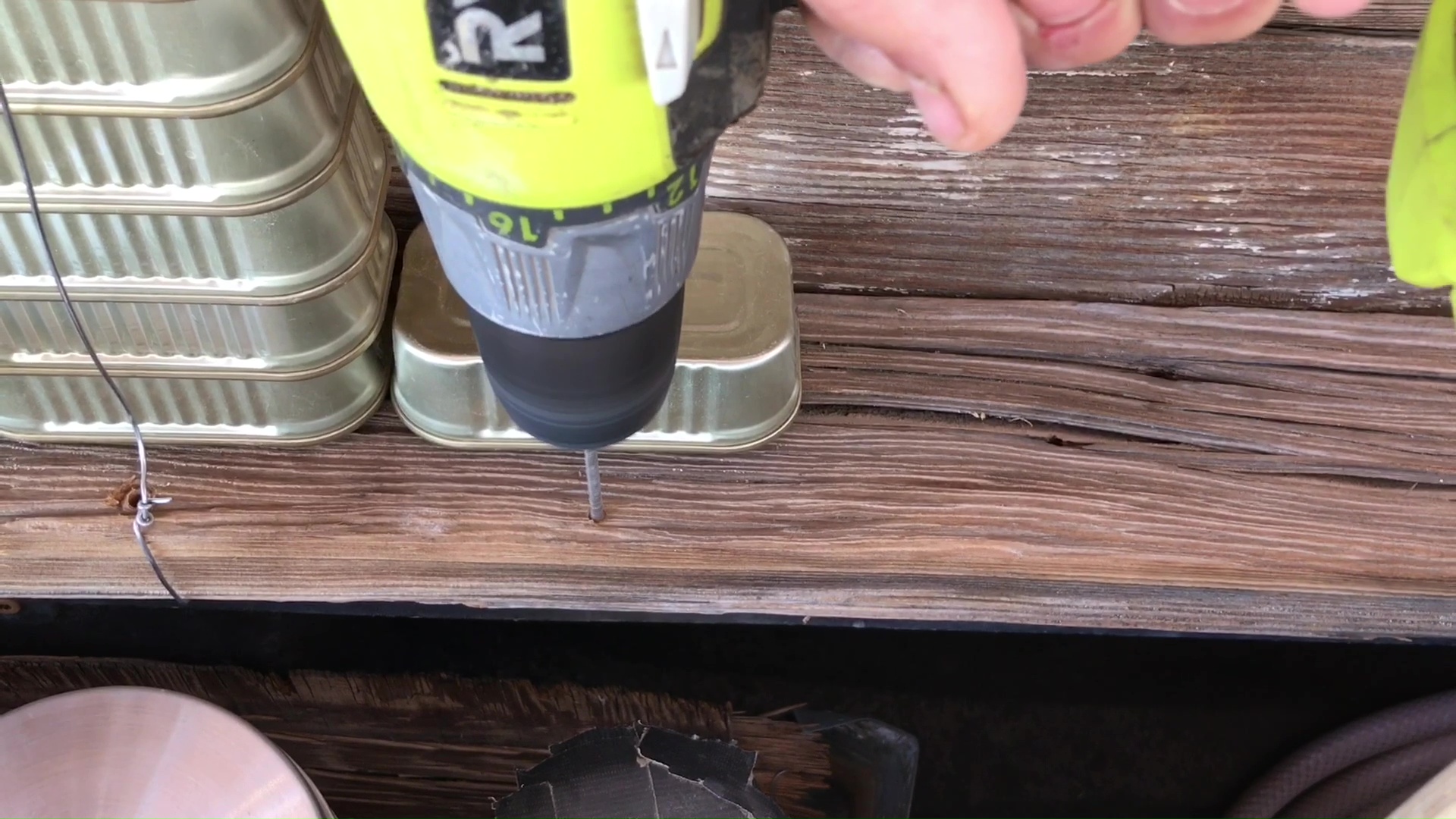
04 Drilling Base Attachment Point For Wire Secured Fish Cans
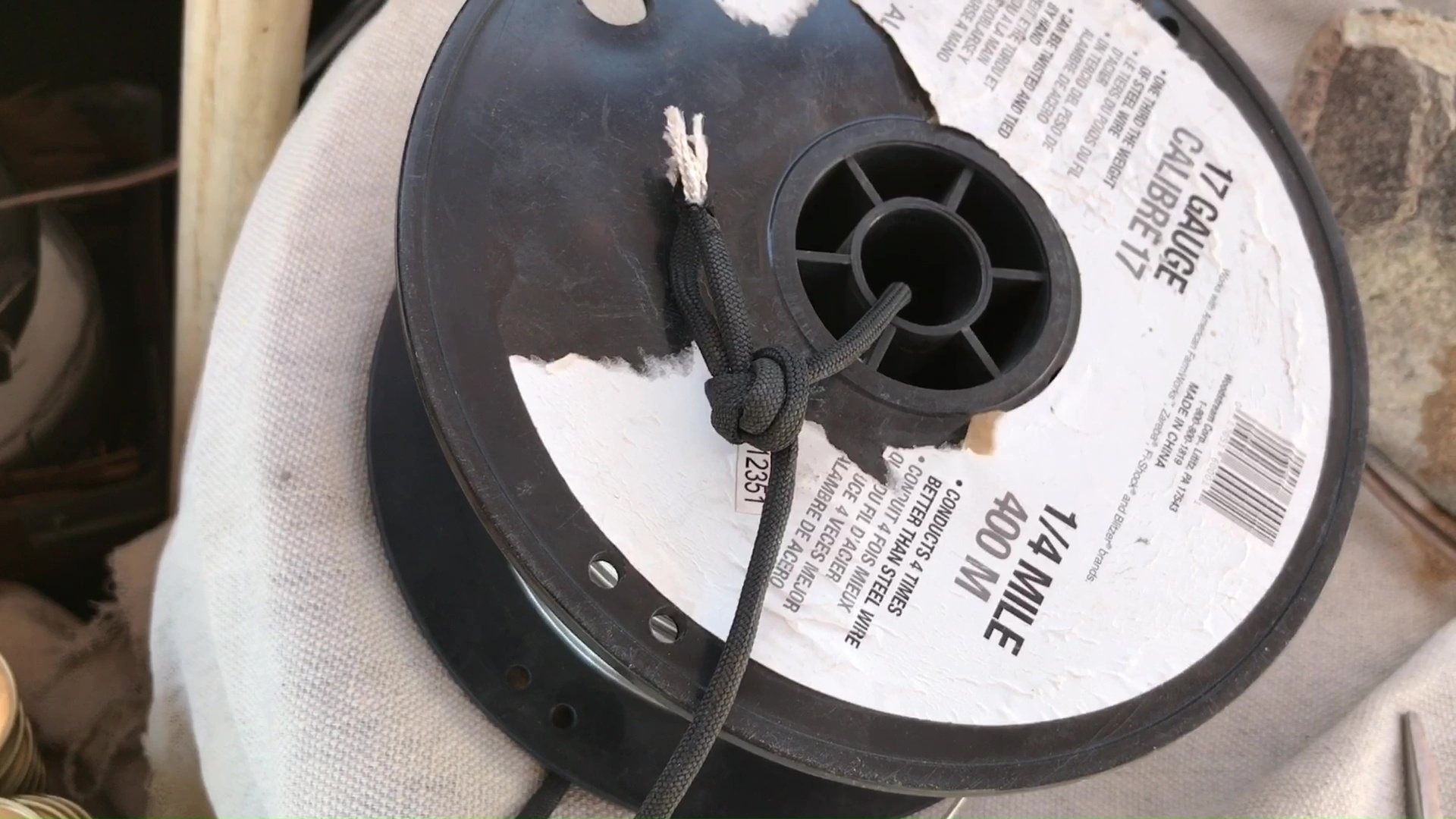
05 17 Gauge Electric Fence Wire Roll
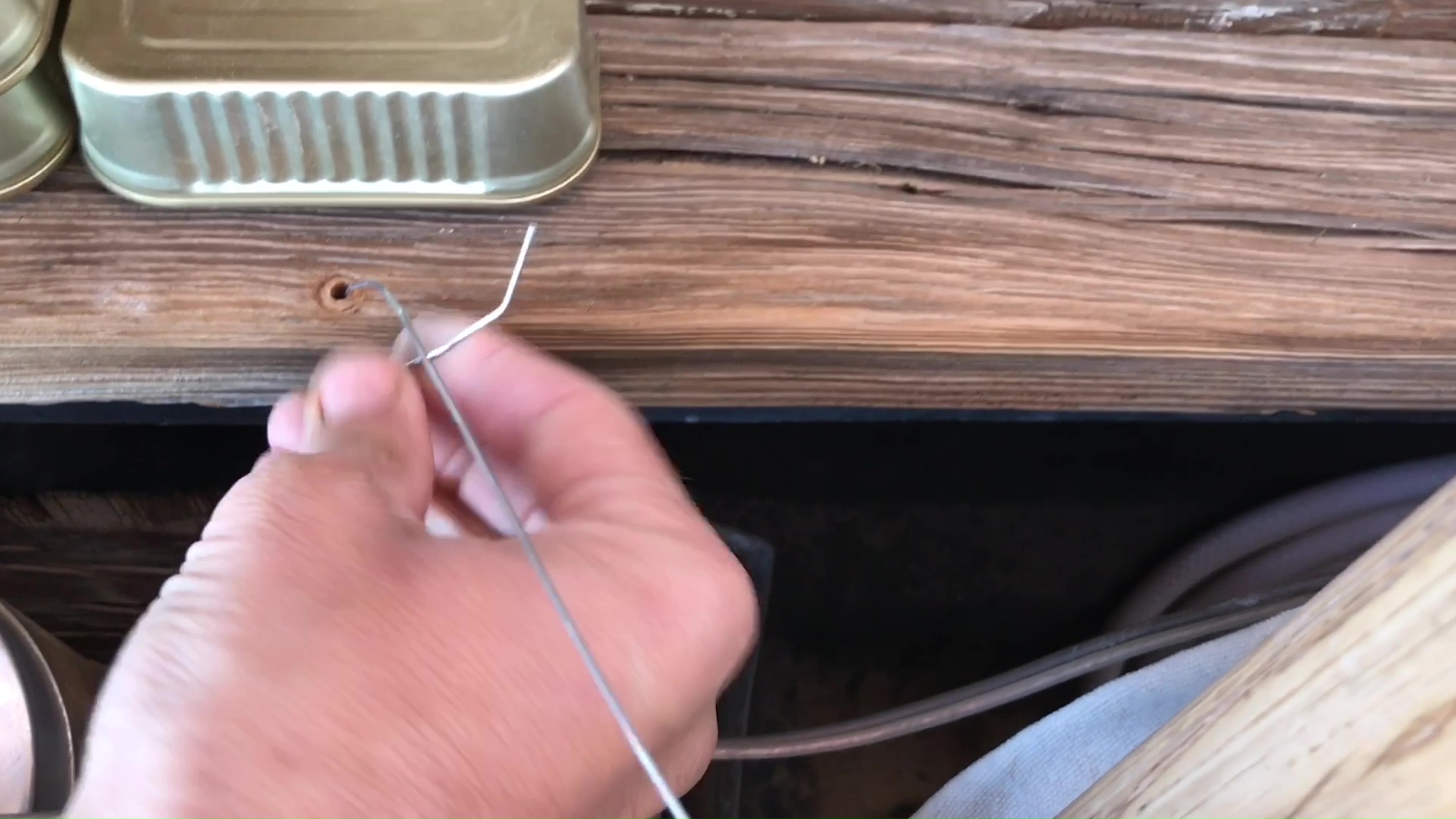
06 Wrapping Wire Around Itself At Base of Fish Can Column 01
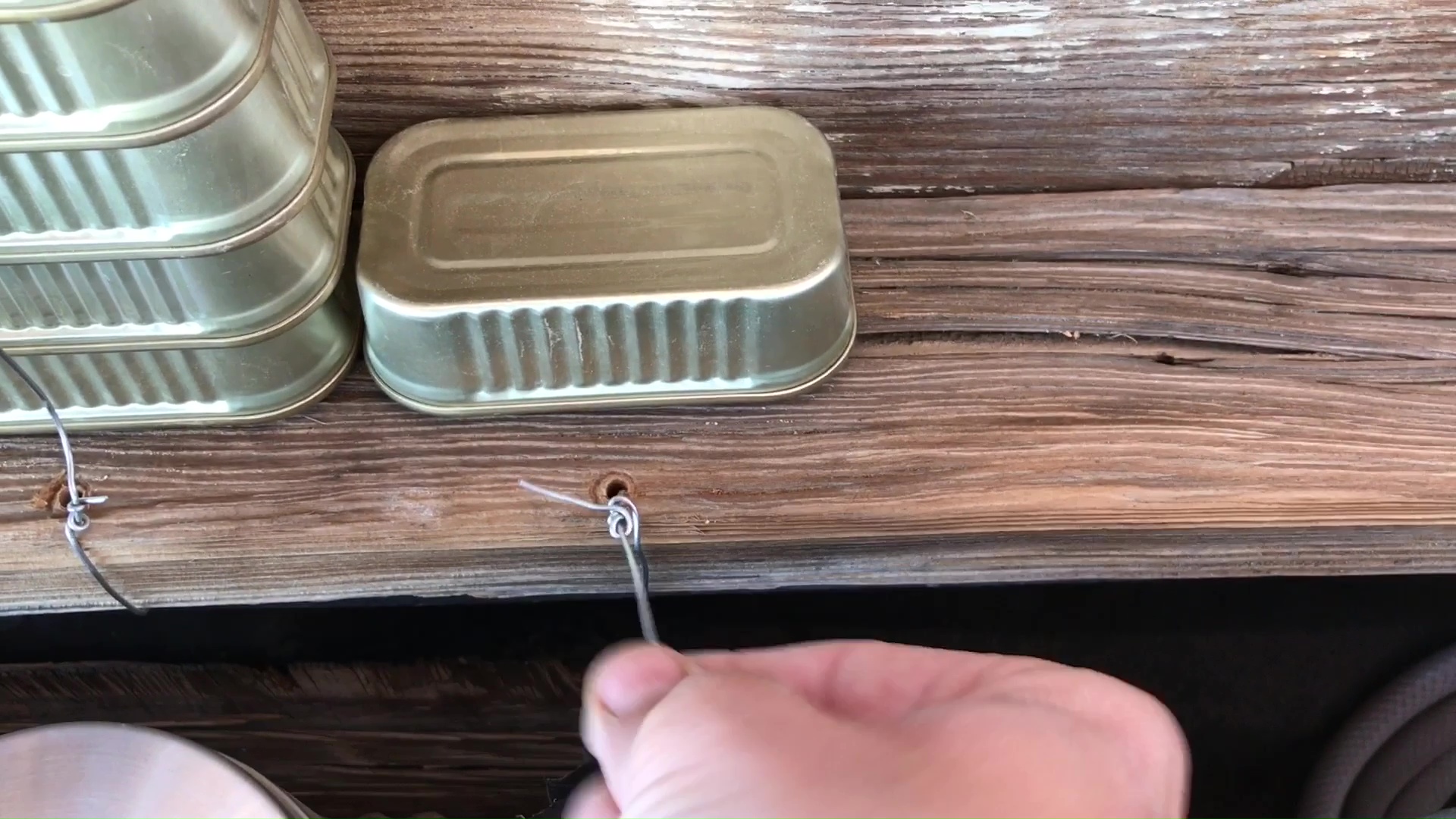
07 Wrapping Wire Around Itself At Base of Fish Can Column 02
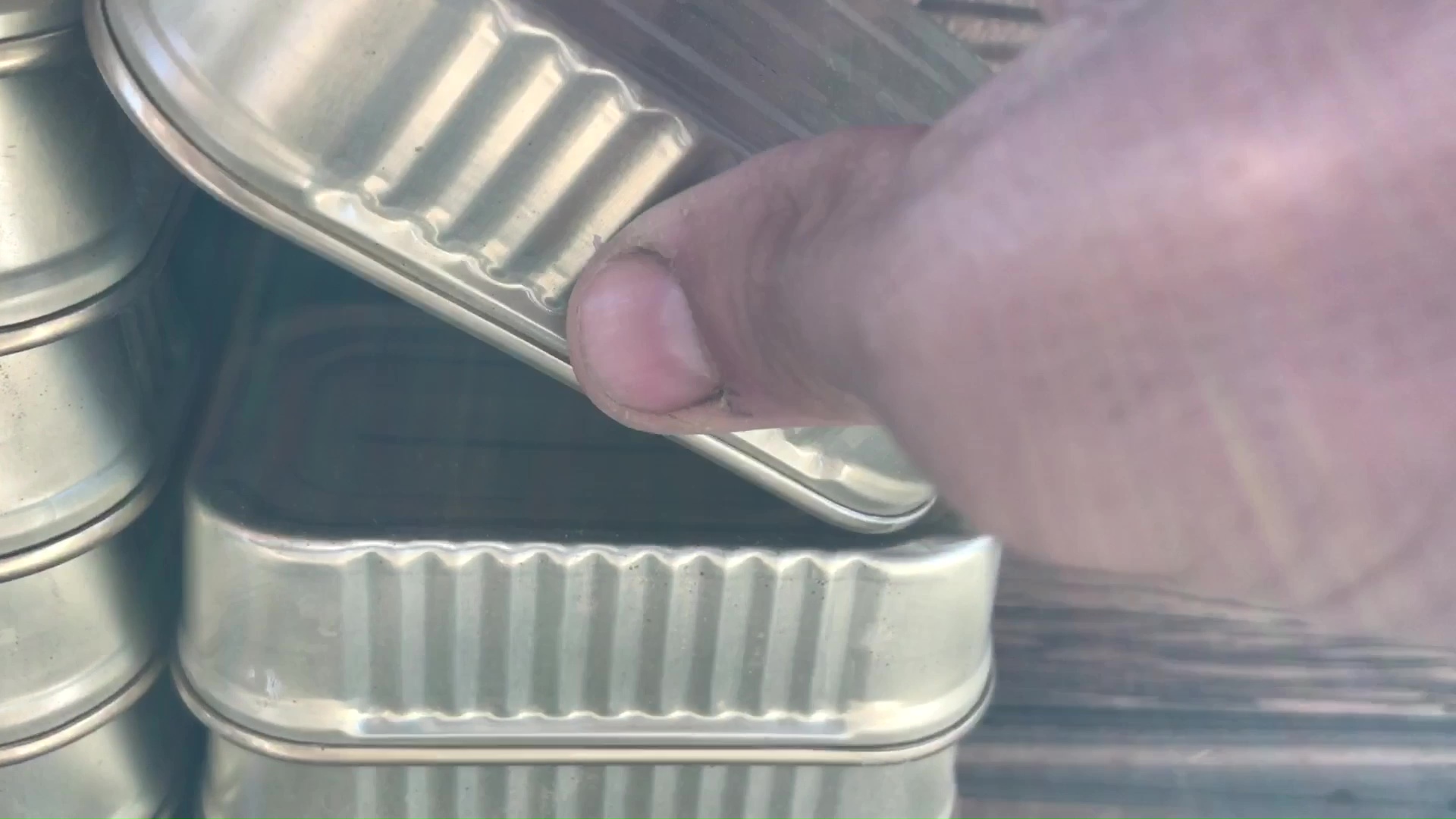
08 Stacking Fish Cans To Measure Top Attachment Point
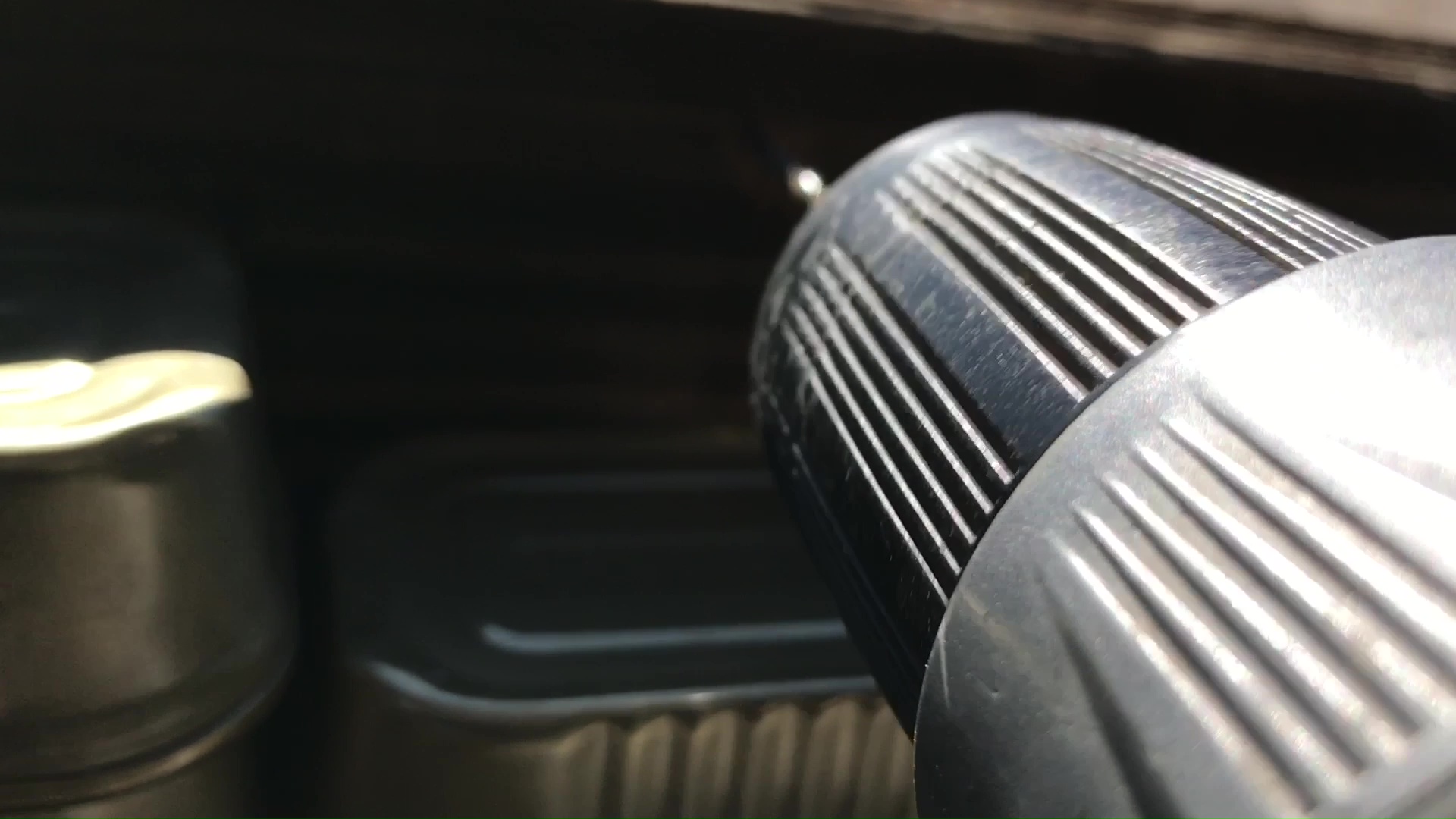
09 Drilling Top Attachment Point For Wire Secured Fish Cans
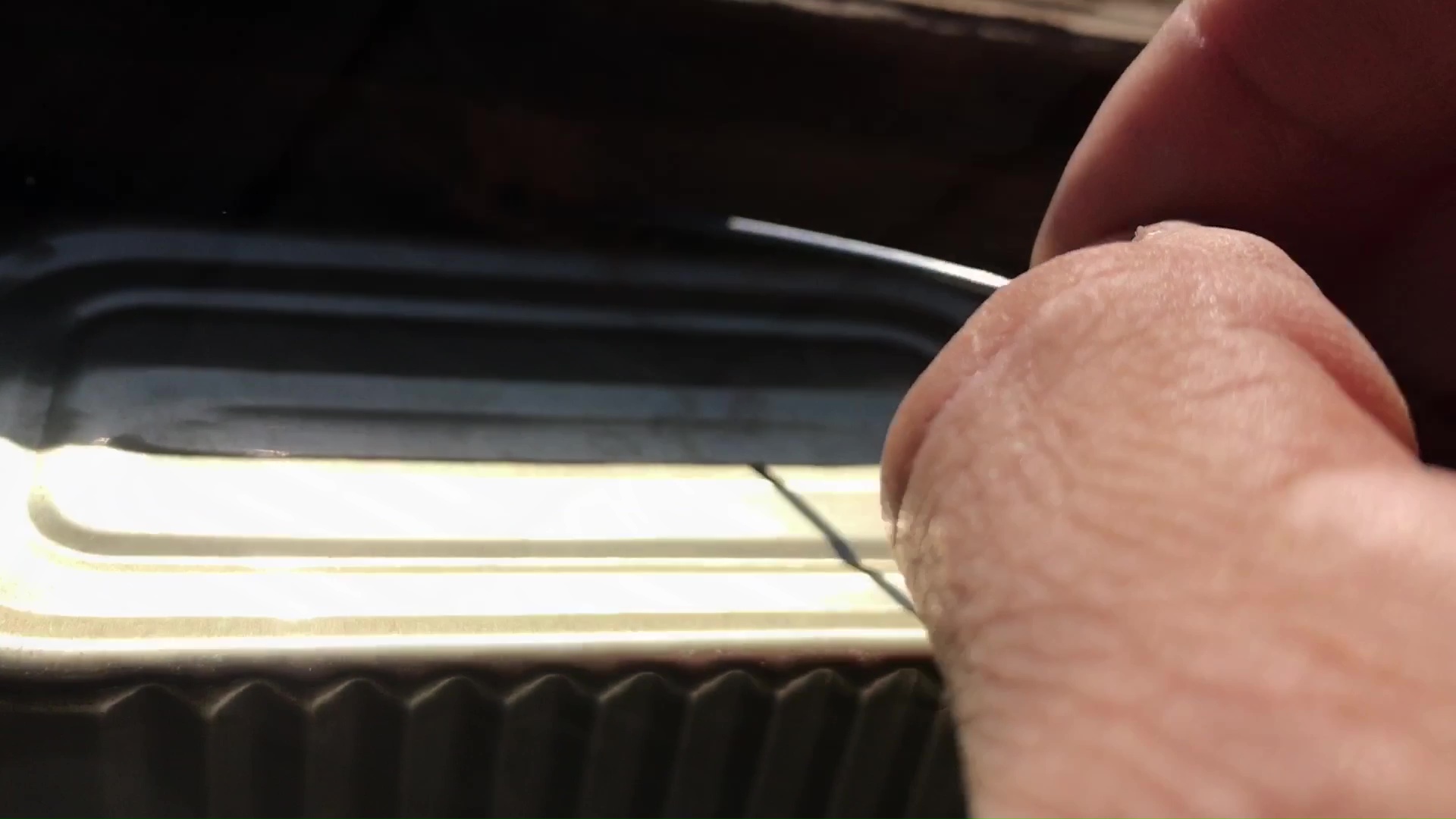
10 Threading Wire Through Top Attachment Point
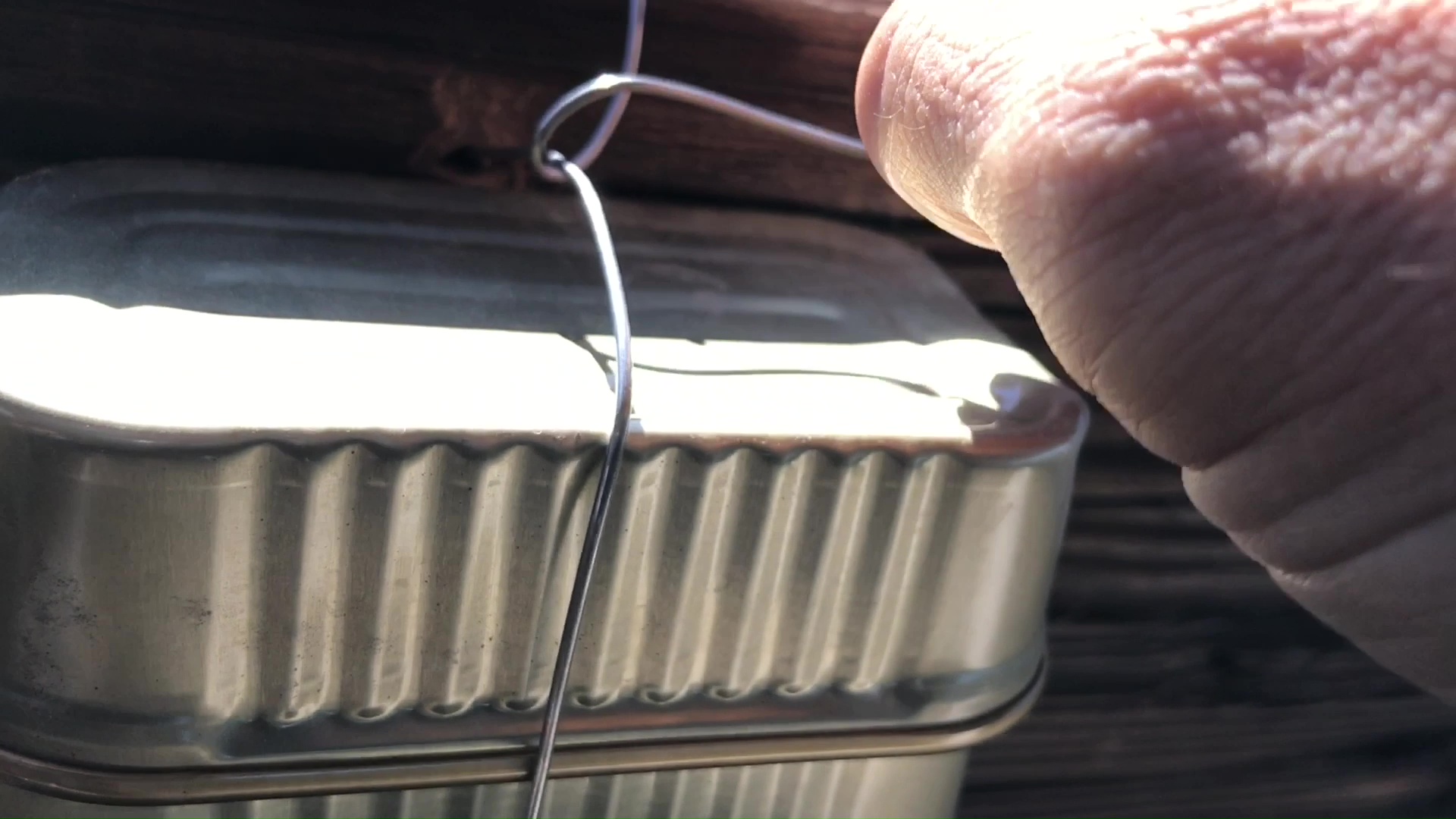
11 Securing Wire At Top Attachment Point
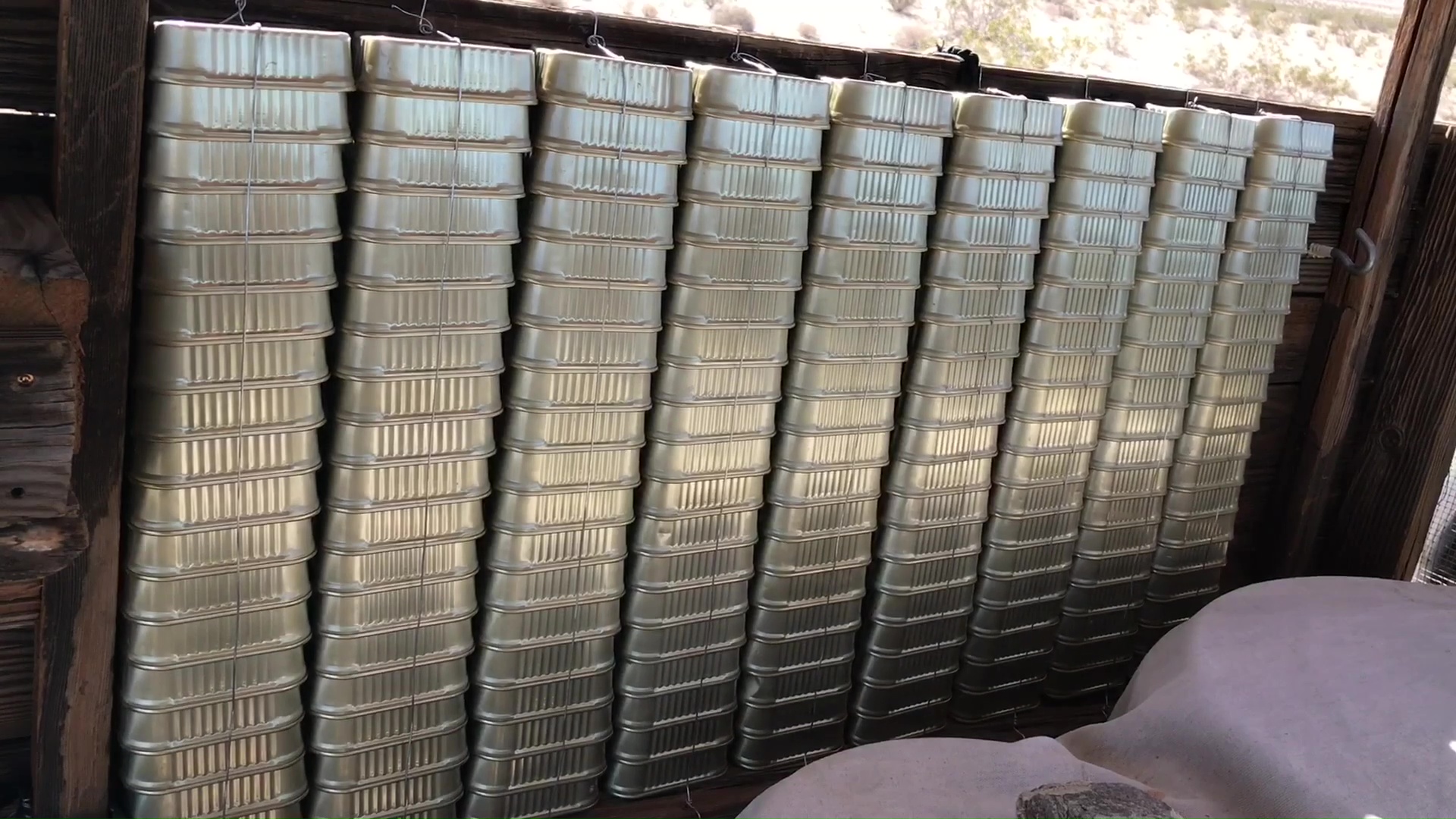
12 Wall Of Fish Can Columns Secured To Lumber Truck Camper With Electric Fence Wire
You Cant Eat Gold But You Can Eat A Wall Of Fish Cans A From Salvaged Lumber Truckstead Camper
My research and experience have taught me that 3-4 ounces of meat per day is an ideal range for optimal health as an omnivore. These sardine cans fulfill that amount for me and I'm comfortable with the trade-off of diversity given the price and the fact that sardines are bottom feeders and therefore accumulate less toxins. Ideally I'd have a very diverse array of meat products stored, and even more ideally, I'll have grown or hunted the meats myself. For now, I'm content with this 6-8 month supply of sardine cans.
Over the years I've learned to feel confident that they can do fine with a minimal amount of shade in an outdoor pantry. Though I finally realized while building this storage system that the smart thing to do would be to invert them so that rain water will naturally roll of the sides rather than collect on the top.
After my recent resupply delivery provided boxes of screws I really needed to repair and build things, I was able to use salvaged lumber to create a number of very optimal shelving systems for the truck camper pantry. I was down to my last usable 2x4 board so I had to think through how best to use it to make a shelving system for my sardine cans. I started with the idea of using 1/4 inch hardware cloth as a sort a work of net wall to keep the stacked sardine cans in place. However not only did that feel like an aesthetic issue, that stuff can be like a cheese grater on your skin. I've had it scrape me up too many times. It would also just make it more difficult to retrieve the cans. So after much deliberation, I decided to experiment with a very simple and elegant design. Since the cans stack so well and are almost fine to just be on their own, it doesn't take all that much to keep them secure from the wind. I figured I could get away with one single length of vertical wire to hold each column in place. Once I had that concept, I first thought I'd have to use small screws to secure the wire at the top and base of each stack. Given that this salvaged lumber can be randomly splintered and brittle, I tend to want to use as few screws as possible as they tend to split the wood.
The idea that saved the day was that I could simply drill holes through the lumber at the base and at the top, thread the wire through the holes and secure it by wrapping it onto itself, and this way I'd have an elegant, adjustable, fastener free method of securing the sardine can stacks. It turned out to work perfectly. With no screws, not much wire, and just a series of drilled holes, I was able to secure a whole wall of almost 200 cans, just stacked on a the ledge of a truck bed wall.
It's a nice aesthetic to see this wall of what looks like gold bars. But as they say, you can't eat gold, and as I say, but you can eat a wall of fish cans.